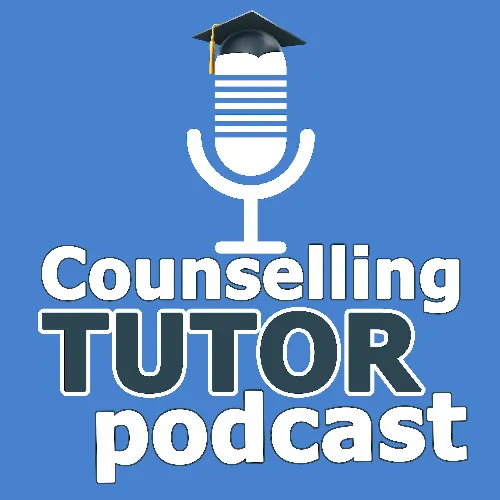012 – Self-Actualisation – Solving Ethical Problems – Seven Stages Of Process in Practice 2 – Difference between Counselling and Psychotherapy
- Author
- Ken Kelly and Rory Lees-Oakes
- Published
- Sat 30 Apr 2016
- Episode Link
- https://counsellingtutor.com/self-actualization-ethical-problem-solving/
In episode 12 of the Counselling Tutor Podcast, Rory Lees-Oakes and Ken Kelly look at Maslow's hierarchy of needs. Rory presents an approach to solving ethical problems, while Ken continues his application of Carl Rogers' seven stages of process to counselling practice. Finally, 'Ask Ken and Rory' asks: what are the differences, if any, between counselling and psychotherapy?
Self-Actualisation
This is a growth model, based on the idea that we need the basics of existence in place before we can think about the next level. Abraham Maslow's hierarchy of needs has five levels, each possible to achieve only once the previous one is in place:
physiological needs
safety needs
love and belonging needs
esteem needs
self-actualisation.
Self-actualisation represents a person being (in Rogers' terminology) fully functioning and fluid. It is natural that people move between levels; for example, in a natural disaster, people who had self-actualised would again prioritise their physiological needs.
Solving Ethical Problems
Tim Bond is the main author of the new Ethical Framework for the Counselling Professions, produced by the British Association for Counselling and Psychotherapy (BACP). In the 'Ethics' section, paragraph 7 (p. 3) reads: 'A decision or course of action does not necessarily become unethical merely because it is controversial or because other practitioners would have reached different conclusions in similar circumstances. A practitioner's obligation is to consider all the relevant circumstances with as much care as possible and to be appropriately accountable for decisions made.'
Defensible decision-making is paramount for any practitioner, and being able to account for our decisions appropriately means following a systematic process. If you face an ethical dilemma, you should consult your supervisor, and could call your professional body (e.g. BACP). But it is vital too to have our own tool, for times when these options may be unavailable; Rory uses Bond's six-step matrix:
Produce a short description of the problem or dilemma - Rory recommends writing this down by hand if possible.
Ask yourself: whose dilemma is it (the client's, the counsellor's or both)? If the problem is purely the client's, then you may not need to proceed further.
Consider all available ethical principles and guidelines (your professional body's framework, and your agency's policies/procedures), as well as the law.
Identify all courses of action, even those that sound implausible.
Select the best course of action and test it against three ideas: universality (would others in the same position do the same thing?); publicity (would it stand up to public scrutiny?); and justice (is it doing the right thing?).
Evaluate the outcome (would you do the same thing again?).
This matrix encourages the counsellor to consider and respond to various aspects of the ethical dilemma, and so enables them to account appropriately for the decision. It can highlight issues that may lead the counsellor to make a different decision from that they originally expected. It can also help the counsellor to reflect on difficult decisions made, so providing learning for dealing with future ethical dilemmas.
Seven Stages of Process in Practice 2
Continuing from last week's podcast,
